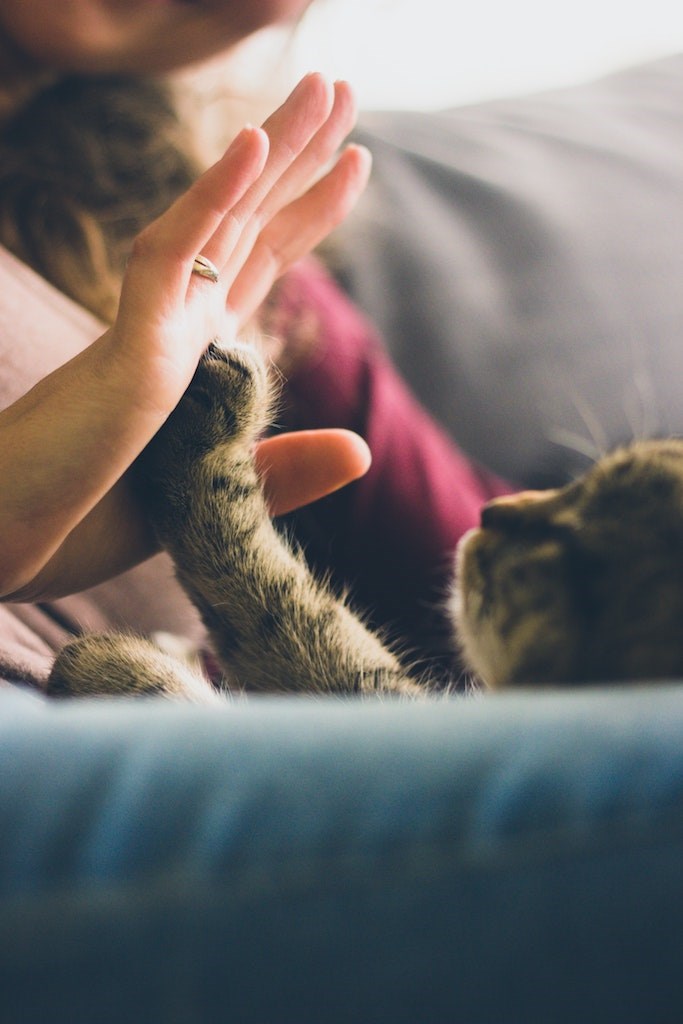Bowen Island's resident vet, Dr. Midge Ritchie of Bowen Veterinary Services answers some questions about COVID-19 and your pets.
What’s the most common concern you’re hearing from pet owners about COVID-19?
I think the biggest concern from pet owners world-wide is if their pet can become infected with COVID-19 and everything we know as of right now is that there is very little evidence that animals can become infected from an owner who is positive and there is absolutely no evidence of pets infecting a human. It is important to remember that pets can carry the virus on their fur, acting as a “fomite” similar to a pen or other object so infected owners should limit their contact with their pets.
What do pet owners need to be worried about?
Other than the information above, I feel that pet owners should be aware of the type of cleaning products they may be using in their household. Ingestion of disinfecting products that contain sodium hydrochlorite (bleach) or phenolic (ie Lysol) can be toxic. Your pet may not drink these directly but if they walk on a wet surface that has been cleaned with one of these products and then groom themselves it can cause the toxicity.
What don’t they need to be worried about?
They do not need to be worried about catching COVID-19 from their pet.
What extra measures are in place at Bowen Veterinary Services to respond to COVID-19?
We are following the CVMA and CVBC recommendations that have been set last week. As we are considered an essential service we are doing whatever we can to provide care for the pets of Bowen Island in the safest manner possible. (Here is a copy of the statement we put out at the end of last week.
COVID-19 Bowen Vet Services Update for March 26
Bowen Veterinary Services remains open but has taken extra precautions to limit human contact and protect our clients and our staff. Read these helpful tips below:
- Please call ahead to order medications and food and be prepared to pay by credit card over the phone. When you arrive for pick-up, call the receptionist and they will leave your items outside.
- Clients that show up at our door will be screened with three health questions through the clinic window before allowing entry. If you are symptomatic, please send someone in your place
- Vet to client communication will take place by phone whenever possible
- Appointments will be spaced to allow the staff to perform disinfecting protocols in between patients
- Emergencies or cases requiring overnight hospitalization and/or advanced diagnostics will be referred directly to Mountainside Animal Hospital & 24 Hr. Services. (604) 973-1247 as Bowen Vet is not licensed to provide emergency services after hours.
The following is a list of what services Bowen Vet is or is not performing at this time as dictated by the CVBC (College of Veterinarians of British Columbia) and the CVMA (Canadian Veterinary Medicine Association):
- Wellness visits are postponed until further notice.
- Rabies vaccines will only be given in a puppy or kitten series and the first booster (at approximately 16-months of age). All animals who have had multiple rabies vaccines will be postponed. We will give any animal with potential exposure to rabies a booster within seven days of exposure.
- All other vaccine series that have been started will be completed if deemed medically important, such as with puppies and kittens.
- Life-threatening conditions will be managed using social distancing. If you are high-risk please let us know when you make the appointment and we will manage the case accordingly.
- Management of painful conditions will be managed with telemedicine (phone or email). We will determine if an in-person exam is necessary. Please note that there will be a charge for telemedicine consults.
- Management of chronic conditions will also be managed via telemedicine.
- All elective procedures (such as spays, neuters, dentals and most mass removals, etc.) will be delayed and elective surgeries of painful disorders will only to be done if the pain can’t be managed with analgesics or if the delay of the surgery could lead to a negative outcome. This will be determined on a case-by-case basis.
- Blood and urine monitoring delayed unless doing so could increase risk of complications. Determined on case-by-case basis.
Euthanasia’s will proceed with social distancing in place as much as possible to allow pets and their human families to remain connected during this incredibly difficult end-of-life stage.



